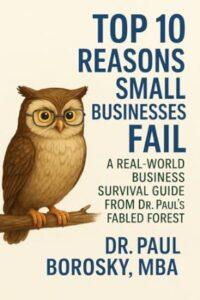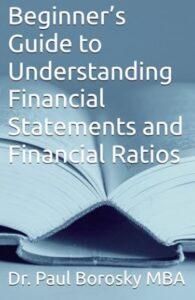Business Plan Writer | Atlanta, GA.
Your CEO Partner — the behind-the-scenes force that makes CEOs stronger, sharper, and more effective
Call or text Dr. Paul at (321) 948-9588
Atlanta is one of the Southeast’s most powerful business markets, driven by corporate headquarters expansion, film and media growth, fintech innovation, and relentless development across the I-285 corridor, Tech Square, Midtown, Buckhead, and Perimeter Center. These hubs are fueling opportunities for restaurants, logistics firms, retail concepts, creative companies, and home-service providers. Atlanta moves fast — and if you want to compete here, you need more than a concept. You need a structured, lender-ready business plan.
Dr. Paul Borosky, DBA, MBA, a leading business plan writer and financial modeling expert, creates customized business plans grounded in Atlanta’s real economic conditions. From Hartsfield-Jackson demand cycles to I-75/I-85 distribution networks, SBA lender requirements, and county-specific growth trends across Fulton, DeKalb, Cobb, and Gwinnett, your business plan is fully aligned with how funding decisions are actually made.
What We Provide...
Atlanta Business Plan Writer Hub Serving: Atlanta | Kennesaw | Sandy Springs | Roswell | Decatur | Smyrna
Hey All, Dr. Paul Here — Atlanta's Business Plan Writer Who Delivers Your Plan in 7 Days (Guaranteed)*
Who I am NOT...
- I am not a template shop.
- I am not Fiverr.
- I am not AI (it's a great tool)
Who I am... doctorate-level business consultant with:
- 14+ years of experience
- 1,000+ completed business plans
- $100M+ in supported funding projects
- Deep knowledge of Atlanta's economic landscape
- Real expertise in SBA, bank, and investor requirements
My SECRET Sauce - I only take on the number of clients I can personally guarantee within 7 days.
- I don’t overload my schedule.
- I don’t rush quality.
- I don’t cut corners.
I deliver a serious business plan, sound financial projections — fast, accurate, and ready for submission.
What You Get - What We Do...
Business Plan Writer Process
- Choose a business plan package (Express, Traditional, Complete)
- Complete our questionnaire
- Initial Meeting
- Approve the scope of work/Final Payment
- Plan is ready in 7 days - Guaranteed!*
What You Get...
- Business Plan Written by Dr. Paul (optimized by AI)
- Less stress
- Proven Structure
- Doctorate level preparation
- Plan done in 7 Days - Guaranteed!*
Proven Results
- Trucking company in Raleigh, NC. - 205k funding ready plan.
- Convenience store in Miami, FL - 1.3 million funding ready plan.
- Bed and breakfast in Houston, TX - 850k funding ready plan.
- RV park in Central Florida - 950k funding ready plan.
- Daycare in Cleveland, OH - 75k
Ready for a Business Plan Written Right — and Delivered in 7 Days?
- You don’t need to wait.
- You don’t need to struggle.
- You don’t need to guess.
You need a professional who delivers.
*If the plan is not emailed in 7 days - a $100 credit will be issued. The seven days starts the next business day after final payment and signed scope of work.
Ready to Stand Out in Atlanta's Competitive Market?
Text or Call Dr. Paul Today - 321-948-9588
Popular Industries in Atlanta
Bar or Lounge
Atlanta’s bar and lounge scene continues to grow, especially in Midtown, Buckhead, and along the BeltLine. Labor availability is mixed: the city offers a large pool of experienced servers, bartenders, and hospitality workers, but competition from high-volume nightlife districts creates ongoing hiring pressure. Operators must offer competitive wages, flexible schedules, and strong training programs to secure and retain staff. Despite staffing challenges, Atlanta’s nightlife demand remains strong, making well-run bars and lounges highly competitive.
Beauty Supplies & Products
The beauty supply market in Atlanta is powered by strong demand within communities across Southwest Atlanta, South Fulton, and the metro’s fast-growing suburbs. The city’s diverse population drives steady sales in haircare, skincare, beauty tools, and specialty products tailored to multicultural customers. High social media visibility, celebrity influence, and a thriving salon culture boost year-round demand. Entrepreneurs who stock trending items and offer personalized service can build a loyal customer base quickly in this high-demand market.
Ready for a Free 15 Minute Business Plan Writer Consultation?
Laundromats
Atlanta’s regulatory environment for laundromats is manageable but requires attention to zoning rules, water-usage requirements, and equipment standards. Operators must comply with city and county permits, utilities setup processes, and commercial lease restrictions, especially in areas like Decatur, East Point, and College Park. While regulations are straightforward, startup costs—such as energy-efficient machines and utility upgrades—must be planned carefully. Entrepreneurs who secure proper approvals and choose high-traffic neighborhoods can operate successfully in this stable, essential-service industry.
Atlanta Neighborhood Demand & Fit Table
Purpose: Show where each business model works best in Atlanta and why location directly affects success.
| Industry | Best-Fit Atlanta Areas | Primary Demand Driver | Why Location Matters |
|---|---|---|---|
| Bar or Lounge | Midtown, Buckhead, Atlanta BeltLine | Nightlife density, events, young professionals, tourism | Foot traffic, proximity to entertainment districts, and late-night zoning directly determine volume and profitability |
| Beauty Supplies & Products | Southwest Atlanta, South Fulton, surrounding suburbs | Multicultural consumer demand, salon density, social-media-driven trends | Proximity to core customer base and salons drives repeat sales and brand loyalty |
| Laundromats | Decatur, East Point, College Park | High renter concentration, multi-family housing, essential services | Population density, utility access, and zoning stability determine long-term cash flow |
How Dr. Paul Can Help Your Atlanta Business Stand Out
As a professional business plan writer, Dr. Paul can help Atlanta entrepreneurs—whether opening a bar or lounge, beauty supply store, or laundromat—present their business in a clear, structured, and easy-to-read format that lenders and investors appreciate. Many owners struggle to explain their concept, revenue model, and profit potential. I fix that. Your plan includes Atlanta-specific market insights, competitive analysis, and detailed financial projections that make your business simple to understand and evaluate. When your plan is organized and credible, lenders trust you, investors stay engaged, and you gain a real advantage in Atlanta’s competitive market.
FAQs
Do I need a business plan for an SBA loan in Atlanta?
Yes. SBA lenders require a complete business plan with financial projections, market analysis, and a clear operational strategy.
How much SBA funding can I get?
Up to $5 million for SBA 7(a), substantial funding for 504 loans, and up to $50,000 through microloans. The strength of your plan heavily influences the amount approved.
What industries are growing fastest in Georgia?
Logistics, technology, film production, healthcare, AI services, construction, and professional services.
How long does SBA approval take in Atlanta?
Most loans take 30–90 days. A complete business plan reduces delays.
About the Author: Dr. Paul Borosky, DBA, MBA

Dr. Paul Borosky, MBA and DBA, CEO Partner dedicated to making CEOs stronger, sharper, and more effective, is the founder of Quality Business Plan, creator of Dr. Paul's Organize-Plan-Grow Strategy, author of numerous published books on Amazon, and publisher of over 1,000 business focused videos on YouTube. For over 14 years, he has helped entrepreneurs and small business owners turn business concepts into tangible businesses. Most recently, Dr. Paul has expanded his expertise into AI Business Integration, developing industry-leading strategies that use custom created and trained AI agents.
Related Links
Need help completing the business plan template? [Business Plan Writing Tutorials]


